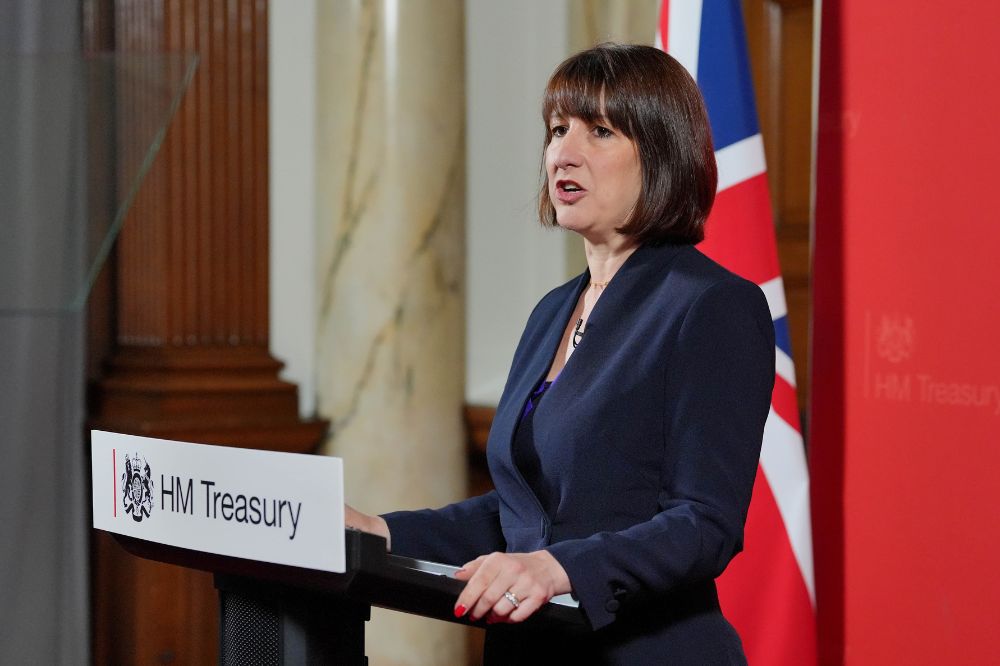Government borrowing jumps in August ahead of upcoming Budget

Chancellor Rachel Reeves faces a fresh headache ahead of her first Budget this autumn after official figures revealed Government borrowing jumped by more than expected last month.
Borrowing rose to £13.7 billion last month, marking the third highest August on record, driven by higher spending on public services due to increased running costs and pay increases.
The increase means public sector debt hit 100% of gross domestic product (GDP) at the end of August 2024.
The figure, which excludes public sector banks, means national debt is at levels last seen in the early 1960s, the Office for National Statistics (ONS) said.
ONS chief economist Grant Fitzner said: “Borrowing was up by over £3 billion last month on 2023’s figure, and was the third highest August borrowing on record.
“Central Government tax receipts grew strongly, but this was outweighed by higher expenditure, largely driven by benefits uprating and higher spending on public services due to increased running costs and pay.”
The ONS said public sector borrowing was £3.3 billion more than in August last year.
The total for August was also more than the £11.2 billion forecast by Britain’s official forecaster, the Office for Budget Responsibility (OBR), and more than the £13 billion most economists were pencilling in.
Economy
Chief Secretary to the Treasury Darren Jones said: “When we came into office, we inherited an economy that wasn’t working for working people.
“Today’s data shows the highest August borrowing on record, outside the pandemic. Debt is 100% of GDP, the highest level since the 1960s.
“Because of the £22 billion black hole in our public finances we have inherited this year alone, we are taking the tough decisions now to fix the foundations of our economy, so we can rebuild Britain and make every part of the country better off.”
It comes after the new Chancellor accused the previous Conservative government of leaving a £22 billion black hole in the public finances.
The Government’s recent decision to restrict winter fuel payments to only those on pension credit is among the “tough decisions” Ms Reeves has said she will have to make in October, as part of an effort to plug the spending gap.
Borrowing in the financial year so far to August 2024 was £64.1 billion, £0.3 billion more compared to the same five-month period a year earlier.
Support our Nation today
For the price of a cup of coffee a month you can help us create an independent, not-for-profit, national news service for the people of Wales, by the people of Wales.






The extra borrowing direct result of both Rachel Reeves action, re public sector pay rises and the highest paid in Downing St and the de facto leader of the country Sue Grey.
We need an independent verifiable check on the £22 billion “black hole” which seems to be the only phrase that is being repeated ad nauseum to support public sector pay rises above inflation and with no conditions attached! No wondercthe Labour affiliated Unions are jumping for joy!!!!
Can this be attributed to the lack of mental asylums and the crazies applying for jobs they think they can do? Just because someone has worked for the bank of England dose not mean they are good with basic mathematics.
I wonder if Reeves has any plans for politicians to contribute towards the £22bn. black hole in the forthcoming ‘painful’ budget without putting it on their expenses slips.
Like clawing back some of the VIP lane cash?